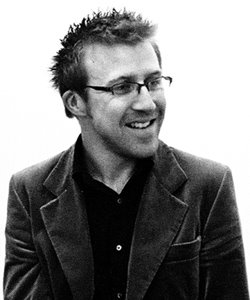Performance Evaluation I

Part one
This evaluation is in two parts. Part one written before the first public performance and part two written afterwards. Tonight we had the last dress rehearsal. Lights. Costume. Action. Lines were learnt. Shloer was poured. People went to the toilet. We took pictures.
It is difficult for me to evaluate the performance objectively because I have become so connected to the process and so conscious of the act of communion that is taking place. It is absolutely not about the quality of the work it is the quality of the experience - for those performing and those witnessing. We see beyond the rough edges, the bed sheets used as masking, the homemade programmes, the house lights being switched off onstage and we immerse ourselves in the enthusiasm. I don't really know how people will respond to the performance. It is different, but not that different from the other show in the double bill. Perhaps Breakfast for One has a clearer narrative and more defined characters but in some ways the narrative of Acts of Communion is the drama group defining the narrative and finding that the characters they are playing are actually themselves.
This is my main concern. Usually the audience's positive response is because of seeing people they know do things they wouldn't usually do. This is the attraction for many of amateur dramatics in the first place. The question is, in casting them as themselves, have I removed this vital piece of make-believe? The illusion is no more. We declare ourselves to be who we are and where we are. The Church Hall.
The piece is written to be delivered fast. The learning of lines. The pouring of Shloer. The movements from wedding to christening. The toasts. All slow it down. I wonder if this exposes the writing's frailties and makes the onstage action less dynamic. If people do not follow the narrative flow then there is not much for them to look at. Even the Evening Post photographer was disappointed there were no props. I wrote the wedding and the christening when I was doubting the project and doubting myself. You can tell. It does not have the confidence of the raffle and the funeral and it is interesting that we all perk up as soon as Ian and Louise start to draw tickets. This could be relief after what has come before but I believe these scenes are stronger because they were written after I made my breakthrough over the summer. What I learned from the MA. Less is more.
With hindsight I wish I could have had more time to develop the earlier sections of the writing to improve them. Make them less complicated. Make them more confident. But within the amateur dramatic framework you have strict line learning deadlines. In this respect I failed due to a lack of focus at these stages. I was still trying to make this act dovetail with another act. So that the absence in this one would be a presence in the other and vice versa. In some ways as the ideas developed so did the theme - the acts of communion that take place there. Weddings. Christenings. Funerals. Plays. I found that this part of the project dealt more with the stage presence and the presence of pretense. Absence is only hinted at but in the sense of what is not there. A cake. A Bride. A Groom. A baby. A table. Absence as in loss or change. Nothing is left of my childhood.
There will always be changes I could have made. I would have liked to have worked with silence. Have a missing scene. A dance routine where everyone has an invisible partner. But these 'could haves' and 'would haves' could go on forever. The scenes I am still not happy with are still there and we have to make them work. We will see tomorrow night whether the audience object to the style and content. There are moments I am proud of. Dealing with the taboo of life after death in a church play by having the character who dies come back as the woman who played her. Jonathan reading the wedding cards from members of the drama group that are sitting beside him. The Raffle. Overall I am more proud of the process than the product. I will miss meeting on a Wednesday night. I have known the church and the drama group in a different and brighter light. We have shared an act of communion in making the show. I hope that comes across in the writing. That this is our voice not my voice. I wanted to explore the acts of communion that take place here. I only hope the audience will feel the same way. To acts of communion.


0 Comments:
Post a Comment
<< Home